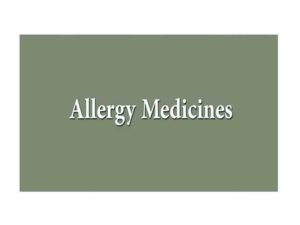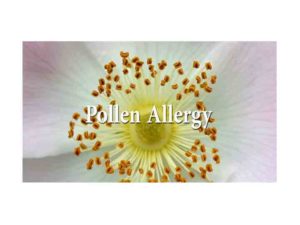Symptoms of Allergy:
Allergy can cause several types of symptoms. Most common symptoms of allergy include sneezing, runny nose, itchy nose, watery itchy eyes, hives etc. The substances which cause allergy are called Allergen.
Common symptoms of allergy include:
- Sneezing
- Runny nose
- Itchy nose
- Stuffy nose
- Coughing
- Sore or scratchy throat
- Watery eyes
- Itchy eyes
- Dark circles under the eyes
- Frequent headaches
- Extremely dry, itchy skin that can blister and weep
- Hives
- Fatigue
- Anaphylaxis
Anaphylaxis is a life-threatening syndrome resulting from the sudden release of mast cell- and basophil-derived mediators into the circulation.
Generalized urticaria and angioedema are the most common manifestations of anaphylaxis
Following are the symptoms of anaphylaxis
Throat: Itching, tightness in the throat, hoarseness of voice
Skin: Itching, hives/ Urticaria, redness, swelling, angioedema
GIT: Vomiting, diarrhea, cramp in the abdomen
Lung: Respiratory difficulty/shortness of breath, cough, wheeze
Heart: Weak pulse, dizziness, reduced BP
Only a few symptoms may be present. Severity of symptoms can change quickly.
Avoidance is the best preventive measure for allergies.
However, an individual may unknowingly come in contact with the allergen leading to an allergic reaction.
For mild to moderate allergic reaction: Over-the-counter or prescribed antihistamines are helpful.
Medications include-
- Antihistamines: Most common medicine used in mild to moderate allergic reaction.
Antihistamines include:
- Fexofenadine
- Levocetirizine
- Cetirizine
- Diphenhydramine
- Desloratadine
- Loratadine
-
Decongestants:
Decongestant can be used to relieve a stuffy nose and sinus pressure. But decongestant can only be used for shorter time usually for three days. Longer time can cause a rebound effect, means once you stop the medicines your symptoms will actually get worsen.
Decongestants include:
- Oxymetazoline
- Pseudoephedrine
- Phenylephrine
- Cetirizine with pseudoephedrine
One should be keep in mind that history of abnormal heart rhythm, heart disease, history of stroke, anxiety, a sleep disorder, high blood pressure, or bladder issues is important before commencing decongestant medication.
-
Eye drops and nasal sprays:
Eye drops and nasal sprays can help relieve itchiness and other allergy-related symptoms for a short time. However, depending on the product, you may need to avoid long-term use.
Like decongestants, overusing certain eye drops and nose drops can also cause a rebound effect.
-
Corticosteroids:
Corticosteroids can help with inflammation and immune responses. These do not cause a rebound effect. Steroid nasal sprays are commonly recommended as a long-term, useful way to manage allergy symptoms. Nasal steroid medications are most effective medications.
-
Immunotherapy:
Your doctor may recommend immunotherapy, or allergy shots, if you have severe allergies. You can use this treatment plan in conjunction with medications to control your symptoms. These shots decrease your immune response to particular allergens over time. They do require a long-term commitment to a treatment plan.




